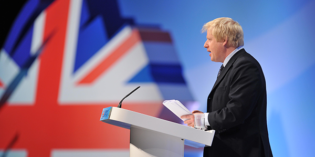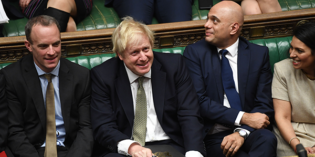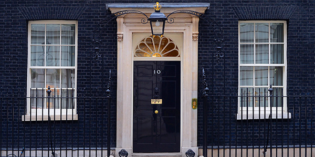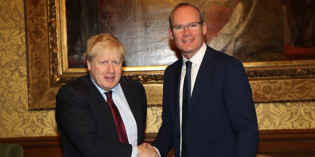Conservative party

Why did the Conservatives’ large lead in vote shares produce only an 80-seat majority?
Plurality rule voting systems have a well-known tendency to exaggerate the seats of the largest party. A full analysis of the 2019 results remains to be completed, but Tim Smith finds evidence that this time around the Conservatives had a modest 23 seat advantage over Labour in terms of two-party bias. The ‘leader’s bias’ advantage was also much smaller than that which Labour enjoyed in 1997–2005. This may mean that the future boundary reforms to equalise constituency sizes may not be as beneficial as the Conservatives hope.

Book Review | Cameron: The Politics of Modernisation and Manipulation by Timothy Heppell
In Cameron: The Politics of Modernisation and Manipulation, Timothy Heppell offers a new analysis of David Cameron’s leadership of the Conservative party (2005–16) and of the UK, organised around the key themes of modernisation and manipulation. In his admirably objective study, drawing on compendious reading of relevant sources, Heppell demonstrates that while Cameron’s attempts to ‘de-toxify’ his party are important to his legacy, it is equally profitable to regard him as a manipulator of the broader political landscape, writes Mark Garnett.

A great or Pyrrhic victory? The dangers ahead for Boris Johnson
This year Prime Minister Boris Johnson must negotiate the details of the UK’s future relationship with the EU. Although he has the benefit of a sizeable Commons majority, there are potential pitfalls for him, explains Ben Worthy, in the complexity of these negotiations, party management and in Johnson’s own leadership style.

What makes a Prime Minister great?
On the day one occupant of Number 10 Downing Street leaves office, and another enters, Ben Worthy assesses how the British public rate previous Prime Ministers, and how the tricky mantle of ‘great’ tends to depend on fickle collective memories, partisan politics – and war.

The forward march of party members: has the shift in power to the grassroots gone too far?
Patrick Seyd writes that while parliamentarians are in a much better position to decide who should lead the party than party members, in recent years the balance has shifted in favour of the latter. This plebiscitary politics negatively affects both the quality of political leadership and of decision-making.

Criticisms of the Westminster model of politics are not new: can the system survive the latest wave of anti-politics?
Criticisms of the highly centralised, elitist, top-down Westminster model are by no means new. Consecutive Prime Ministers – from Blair to May – vowed to take on vested powers and interests, challenge the status quo, and change the way politics is conducted. Yet, as Patrick Diamond, David Richards, and Alan Wager show, they have all failed to deliver their promises. While another wave of anti-politics is looming, they ask how the established parties will accommodate it.

What does Boris Johnson’s political record tell us about his prospects as Prime Minister?
As Conservative MPs whittle the contest to be next leader of the party – and so next Prime Minister – down to a final two who will face the party membership, Ben Worthy assesses the record of the clear frontrunner, Boris Johnson, and what his time as London Mayor and Foreign Secretary indicate about his aptitude for the top job.

Tough and tender: the winning formula for the next Prime Minister
Eleven Conservative MPs are currently running to succeed Theresa May. Whoever emerges from this contest as the next Prime Minister, they will need to have the human and technical skills to tackle both the emotional divisions of the country and the challenges of Brexit, writes Tony Hockley.

Behind the scenes of the Conservative–Liberal Democrat Coalition
The UK’s Coalition government of 2010–15 was established with an array of formal agreements and rules for cooperation. However, finds Felicity Matthews, the informal norms and micro-level practices of individual relationships were critical to its operation. This opens up a new area in research, which focuses on the detailed practices of multi-party governance.

Why Boris Johnson is wrong about the Irish border (again)
Former Foreign Secretary Boris Johnson has, once again, intervened in the Brexit debate about concerns over a hard border between Northern Ireland and the Republic of Ireland. Sean Swan explains how Johnson has misrepresented the problem, and why the border question is of such symbolic and physical importance.


 Democratic Audit's core funding is provided by the Joseph Rowntree Charitable Trust. Additional funding is provided by the London School of Economics.
Democratic Audit's core funding is provided by the Joseph Rowntree Charitable Trust. Additional funding is provided by the London School of Economics.